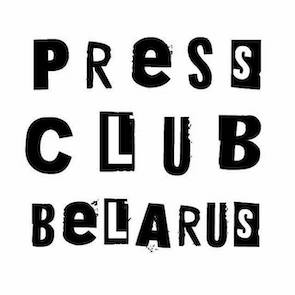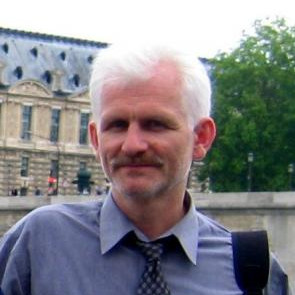Purge of human rights organizations and other civic groups forces them to go underground or in exile
In July 2021, the Belarusian authorities liquidated or started the liquidation process of more than 80 civic organisations, including prominent human rights groups and media organisations such as Legal Transformation Center (Lawtrend), the Office for the Rights of People with Disabilities, Human Constanta, the Belarusian Association of Journalists, the Belarus Press Club and Center for Environmental Solutions. The pressure against civic organisations in many cities in Belarus started much earlier in Autumn 2020. Numerous inspections by various controlling bodies were launched between May and June 2021 and only in July 2021 did it become clear that these actions are a purge of civil society groups. In his speech at a government meeting on 22 July 2021 Alexander Lukashenko likened NGOs, non-profit organisations, bandits and foreign agents saying that they are all “harmful to the country” and that “the purge” is in action. Earlier on 10 April the Minister of Foreign Affairs of Belarus, Vladimir Makey, said that civil society in Belarus “will cease to exist” in the case of tougher sanctions. The forced closure of civic organisations came a week after police raided more than 40 civic groups, including leading human rights organisations. The authorities arrested numerous human rights defenders, including Ales Bialiatski, Uladzimir Labkovich and Valiantsin Stefanovich who have been indicted and are being remanded in custody pending trial.
Read the FLD Statement on 14 July 2021
On July 23 2021, dozens of Belarusian civic organisations discovered that their respective City Executive Committee had ordered to liquidate them the day before, on July 22. Some deducted that the process of forced closures have been ongoing since June 2021. In May and June 2021 many organisations faced numerous inspections by the registration authority, an arduous and lengthy process that interfered greatly in the work of many organisations. After the inspections, organisations were supposed to fix “violations” that were allegedly found during the inspections. However many of them did not receive reports of these “violations” until well after the deadline for their rectification. According to Belarusian legislation on non-profit organisations, registration authorities can only inspect organisations that have a “public association” status, but cannot in the case of organisations with institutional status. The Belarusian authorities also need a court decision in order to liquidate public associations, therefore, the liquidation process of public associations is longer.
Most of the organisations were not informed about the liquidation decisions, nor were they informed of the reason behind the decisions. Belarusian lawyers have emphasized that the liquidation process has many flaws that have complicated by the legal process of closing down for many organisations. For example, the registration authorities did not create the required Liquidation Commissions that were supposed to take over the management of the properties of organisations during the liquidation process. Furthermore, without the required liquidation commissions many organisations whose offices were searched earlier had their bank accounts ceased after the searches, which has also complicated the liquidation process. From the moment the liquidation decision is made, the organisation cannot continue to work, nor spend money on achieving its goals and objectives, otherwise it would be a violation of the Belarusian law on non-profit organisations. Many organisations, whose offices were searched earlier, had their bank accounts ceased after the searches, which has also complicated the liquidation process, which would not be a problem if liquidation commissions were created. Organisations can appeal the decision in court, but most of them don’t plan to do so, as after the wave of liquidations in the early 2000s, there was not a single court decision that recognised that the registration authority was in the wrong.
After the massive raids by the law enforcement on July 14, more than a dozen prominent Belarusian human rights defenders were detained throughout the country, most of them as part of a criminal investigation for organisation and active participation in group actions that grossly violate public order (Parts 1 and 2 of Article 342 of the Criminal Code) and some also for tax evasion (Part 2 of Article 243 of the Criminal Code). On 14 July, Aleh Mackevich and Ihar Kazmerchak were released following questioning and searches. Siarhei Sys and Viktar Sazonau were released on 15 July. Yauheniya Babajeva, Siarhei Mackevich, Andrei Paluda and Alena Laptsionak were released 72 hours after their detention, while Nina Labkovich, wife of Uladzimir Labkovich, was released on 23 July. Travel for Siarhei Sys, Viktar Sazonau, Andrei Paluda, Alena Laptsionak and Nina Labkovich was restricted by the investigator without the decision of the court. Ales Bialiatski, Uladzimir Labkovich and Valiantsin Stefanovich remain in the detention centre No.1 on Volodarskaya street in Minsk. They were indicted. Their lawyers had to sign a non-disclosure agreement and are not allowed to share information about the cases. However the colleagues of the human rights defenders believe that the charges may also be in relation to Parts 1 and 2 of Article 342 of the Criminal Code and Part 2 of Article 243 of the Criminal Code.
Front Line Defenders condemns the purge of human rights organisations and other civic groups in Belarus and sees it as an attempt to destroy civil society in Belarus and make the work of human rights defenders, journalists, lawyers and civic activists impossible in the country. Forcing organisations out of the civic and legal field forces them to go underground or work in exile, and will ultimately lead to less transparency of their activities to the state. Civic organisations’ work on social issues, work with vulnerable groups has been crucial in the country. By shutting down these organisations the authorities make it impossible for the organisations to perform this work which can be done only when the interactions between civil society and the state are in place. Front Line Defenders is seriously concerned by the arrests of human rights defenders and journalists, and believes that they are being targeted solely as a result of their legitimate and peaceful human rights and journalistic work.
Front Line Defenders urges the authorities in Belarus to:
- Take all necessary measures to ensure the immediate and unconditional release of, and drop all charges against, Ales Bialiatski, Valiantsin Stefanovich and Uladzimir Labkovich, and guarantee their physical and psychological security and integrity;
- Reinstate all civic organisations that have been liquidated by the state, and ensure a vibrant, strong and free civil society for human rights defenders to operate within;
- Cease the practice of detentions and judicial prosecution of journalists covering the protests in Belarus and human rights defenders reporting about human rights violations and providing legal support in Belarus;
- Take measures to ensure that government officials and other public figures refrain from making statements or declarations stigmatising the legitimate work of human rights defenders, journalists and lawyers, and publicly condemn slander of them;
- Guarantee in all circumstances that all human rights defenders in Belarus are able to carry out their legitimate human rights activities without fear of reprisals and free of all restrictions.


